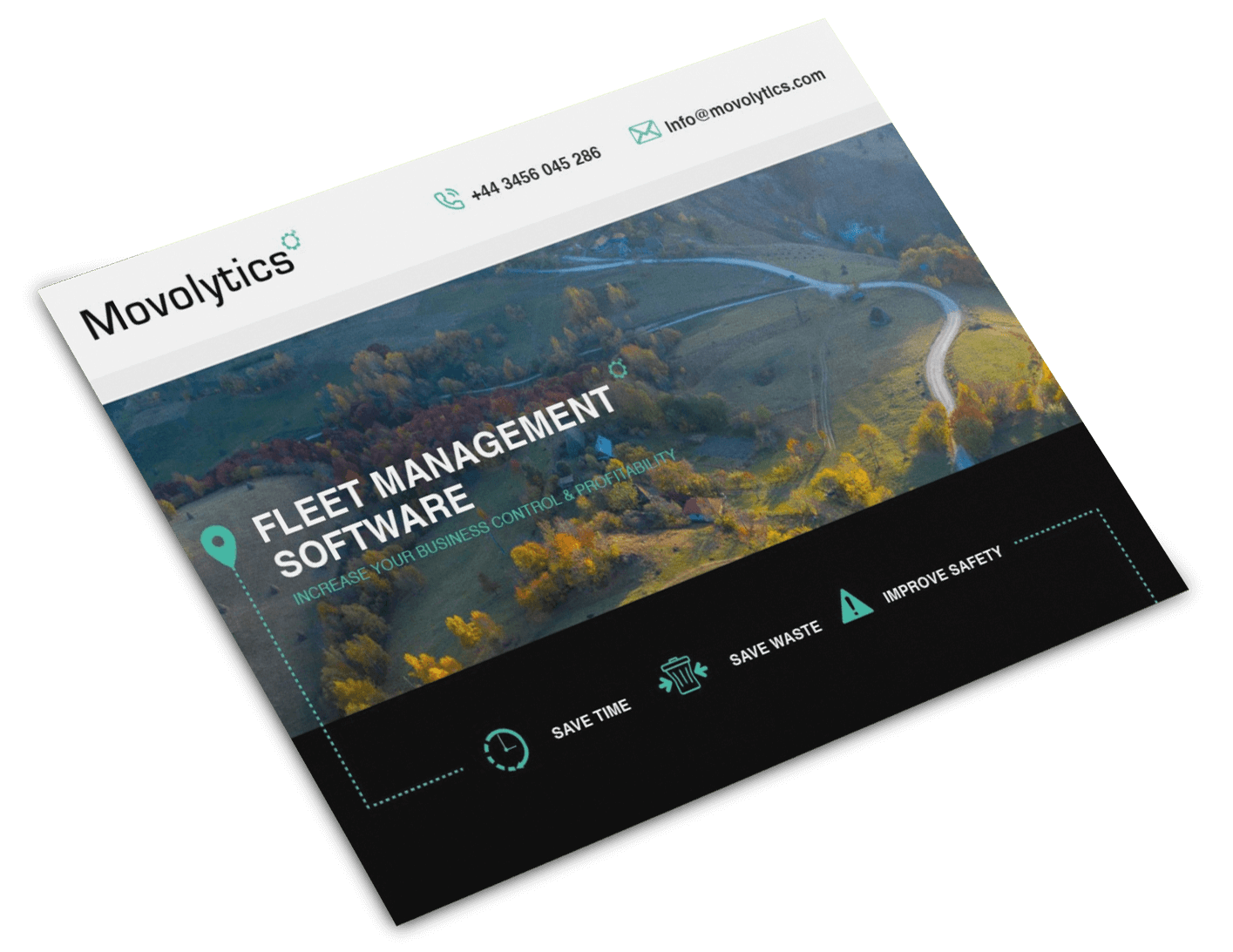
In an era characterised by growing environmental awareness and sustainability goals, eco-friendly routing is emerging as a key telematics trend in fleet management. As the world’s focus shifts to greener practices, optimising routes to minimise emissions and reduce fuel consumption is a top priority for fleet operators. In this study, we explore the importance of green routing and how telematics technology is driving this greener approach to fleet management in 2024.
Green routing: A sustainable shift in fleet management
In recent years, fleet management has undergone a remarkable transformation. Telematics technology has revolutionised the way fleets operate with its ability to collect and analyse real-time data from vehicles. It provides insights into vehicle location, driver behaviour, maintenance needs and much more, enabling fleet managers to make data-driven decisions. Among the telematics trends reshaping the industry, the adoption of green route planning is gaining momentum. This trend underlines the commitment of fleet operators to reduce their environmental footprint, minimise fuel consumption and operate more sustainably.
The road to sustainability: benefits of eco-friendly routing
Eco-friendly routing, enabled by telematics technology, promises numerous benefits for fleet operators. Here are some of the key benefits:
- Reduced environmental impact: by creating routes that minimise fuel consumption and emissions, fleets can significantly reduce their carbon footprint. This is not only in line with global sustainability goals but also improves a company’s eco-friendly image.
- Lower operating costs: Environmentally friendly route planning often leads to lower fuel consumption. Less fuel consumed means lower operating costs, which is a direct financial benefit for fleet managers.
- Increased efficiency: Optimised routes lead to shorter driving times and less idle time. This leads to greater efficiency, shorter delivery times and higher productivity.
- Improved driver satisfaction: Drivers who are assigned eco-friendly routes may be less stressed and fatigued. This can increase driver satisfaction and contribute to better employee retention.
- Regulatory compliance: Many regions have introduced strict emissions regulations for commercial vehicles. Green route planning helps fleets comply with these regulations, avoid fines and maintain a good reputation in the industry.
Telematics technology as a driving force for eco-friendly routing
The successful implementation of green routing depends heavily on the capabilities of telematics technology. Telematics systems play a crucial role in transforming traditional routing into an environmentally conscious and sustainable practice. This transformation begins with real-time data collection, where telematics systems gather a wealth of information from vehicles, including data on fuel consumption, engine performance and the exact location of the vehicle.
What makes telematics technology special is its ability to comprehensively process this data using advanced analyses. These analyses take into account various critical factors such as traffic conditions, vehicle weight and the terrain of the route. They use this information to suggest routes that prioritise fuel efficiency and reduce emissions.
The core of eco-friendly route planning lies in route optimisation, a function offered by telematics systems. These systems generate route recommendations that aim to minimise fuel consumption and environmental impact. This often involves steering vehicles away from congested routes, reducing idle time and avoiding unnecessary detours.
As well as optimising routes, telematics technology has the advantage of providing drivers with immediate feedback. Real-time alerts and feedback help drivers stick to the recommended eco-friendly routes and encourage them to adopt environmentally conscious driving behaviour.
The way forward: implementing eco-friendly route planning
Implementing eco-friendly routing through telematics is an important step towards a more sustainable and environmentally friendly future of fleet management. To be successful in this endeavour, fleet operators can take a structured approach.
The first step is to introduce telematics technology, especially if it is not yet used in the fleet. This technology is the basis for collecting the essential data required for effective route optimisation.
Once telematics technology is in place, the next phase is to thoroughly analyse the data. Fleet managers can use telematics data analysis to identify areas where fuel consumption can be minimised and emissions reduced, contributing to a more environmentally friendly approach.
It is crucial that telematics systems are seamlessly integrated with other fleet management solutions. This integration enables efficient route optimisation and the smooth exchange of important data across the entire fleet.
Ultimately, the path to environmentally friendly route planning is an ongoing process. Fleet operators should regularly monitor and evaluate the effectiveness of these environmentally conscious practices and make the necessary adjustments to maximise efficiency and minimise environmental impact.
Working with a reliable telematics provider is important on the road to green route planning. At Movolytics, we offer comprehensive telematics solutions that facilitate the adoption of green routing practices. Our technology enables fleet managers to make informed decisions, optimise operations and contribute to a greener, more sustainable future.
Green routing: A collective responsibility
As we move towards 2024, eco-friendly routing is no longer just a trend, it’s the order of the day. The responsibility to minimise the impact on the environment while maximising operational efficiency lies on the shoulders of fleet operators. Telematics technology, with its data-driven insights and route optimisation capabilities, is a valuable ally in this task.
At Movolytics, we have made it our mission to support fleet operators on their journey to a greener, more sustainable future. Green route planning is not only about reducing fuel consumption but also about making a positive contribution to the environment while achieving cost savings and operational efficiency.
Join the eco-friendly routing trend and let’s work together towards a future where sustainability and profitability go hand in hand.
Download our brochure
Take a look at our brochure to find out more
